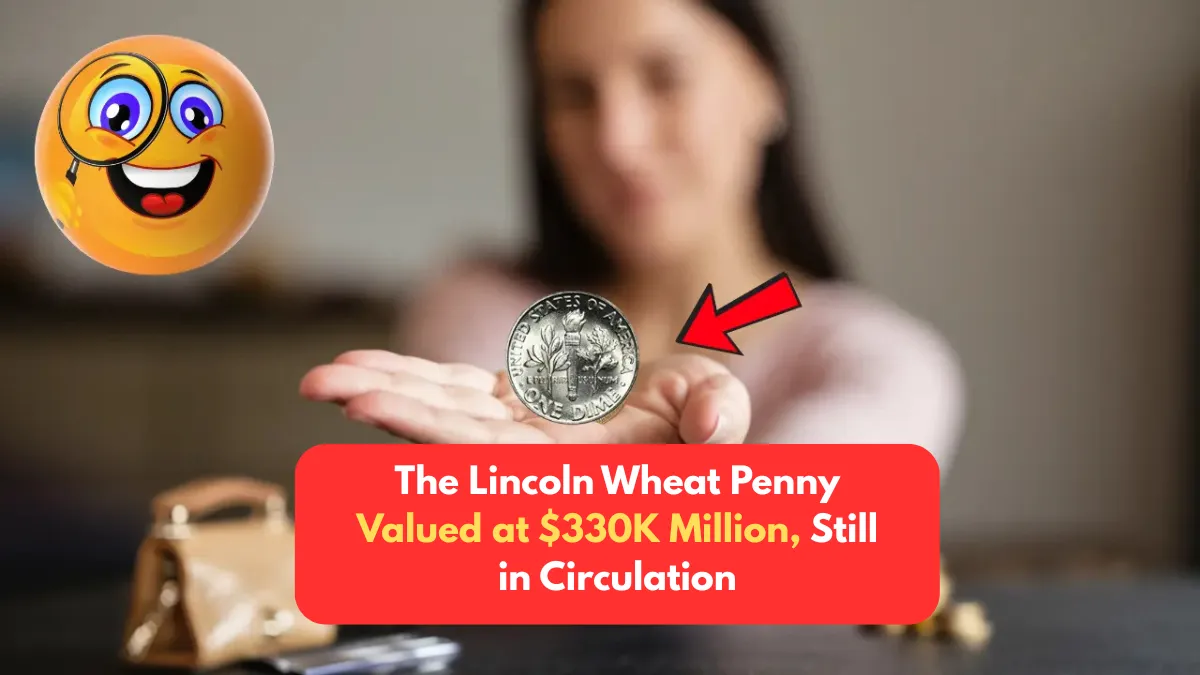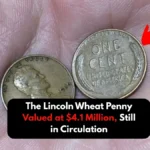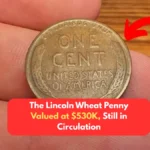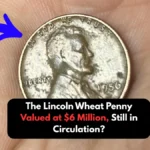Imagine digging through your spare change and pulling out a penny… only to discover it’s worth $330,000. It may sound like a dream, but this has happened before. A rare Lincoln Wheat Penny, believed to still be out in circulation, is valued at $330,000—and it might be hiding in someone’s coin collection right now.
Let’s explore why this small copper coin holds such an incredible value, how you can spot one, and what steps to take if you happen to find this rare treasure.
What Is a Lincoln Wheat Penny?
Produced between 1909 and 1958, the Lincoln Wheat Penny remains one of the most popular collectible coins in the United States. Its design includes Abraham Lincoln’s profile on the front side and two stalks of wheat on the back. The coin also features the inscriptions “ONE CENT” and “UNITED STATES OF AMERICA.” While the majority of Wheat Pennies are only worth a few cents, a few rare varieties and minting errors have soared in value, sometimes reaching into the six-figure range or more.
The $330,000 Lincoln Penny: What Makes It So Valuable?
The Lincoln Wheat Penny that can command a price tag of $330,000 is usually one of the exceptionally rare 1943 bronze pennies or other notable mint errors. Here are some prime examples:
- 1943 Bronze Wheat Penny (Copper Planchet Error)
During World War II, pennies were generally struck from zinc-coated steel to save copper for wartime needs. However, a very small number were accidentally minted using leftover bronze planchets from 1942. These pennies are extremely rare and valuable.
Estimated worth: Between $250,000 and over $350,000
Known specimens: Fewer than 20 exist
Identification tips:
Has a brown or reddish tone rather than silver
Not magnetic
Weighs approximately 3.11 grams
Interesting fact: One of these 1943 bronze pennies recently sold privately for $840,000.
- 1944 Steel Wheat Penny (Opposite Error)
In 1944, copper production resumed, but some steel planchets were mistakenly used again for pennies.
Value estimate: Ranges from $100,000 to $400,000 depending on the coin’s condition
How to recognize it: The coin is silver-colored with the 1944 date
Magnetic properties: Yes, it is magnetic, unlike the bronze version
- 1955 Doubled Die Obverse
A well-known collectible is the 1955 Doubled Die Penny, where the date and lettering appear noticeably doubled due to a minting error.
Value range: $10,000 up to more than $300,000
Rarity: Less than 25,000 examples are known to exist
Key identifiers: Clear doubling on the words “LIBERTY” and “IN GOD WE TRUST”
Quick Test for Rare Pennies
To assess whether your Lincoln Wheat Pennies are rare, use this simple guide:
| Feature | What to Check |
|---|---|
| Date | Look for 1943 (bronze), 1944 (steel), or 1955 (double die) |
| Material | Brownish copper or silver-colored steel |
| Magnet test | Sticks = steel; does not stick = copper |
| Weight | About 3.11g for bronze, roughly 2.7g for steel |
| Mint mark | “S” for San Francisco, “D” for Denver, or no mark for Philadelphia |
What to Do If You Find One
If you believe you have discovered a rare Lincoln Wheat Penny:
Avoid cleaning it since cleaning can decrease its value
Handle it with care, preferably using gloves or holding it by the edges
Weigh it and perform a magnet test using a digital scale and a small magnet
Have the coin authenticated and graded by professional services like PCGS or NGC
Seek advice from a trusted coin dealer or a professional auction house
Why These Coins Matter
These rare pennies carry significant historical value beyond their monetary worth. They reflect important moments in American history such as wartime resource conservation, unique minting errors, and the evolution of coin materials. Both collectors and investors place great value on authentic coins that remain in excellent condition, often willing to pay premium prices to own a piece of history.
Final Thoughts
That old Wheat Penny tucked away in your piggy bank could be worth far more than you imagine. By knowing what to look for and taking a careful approach, you could turn a single cent into an astonishing $330,000. These rare coins are still out there—sometimes forgotten or passed down without recognition. So next time you receive change, take a moment to examine your pennies closely. The valuable Lincoln Wheat Penny you’ve dreamed about could be in your hand.




